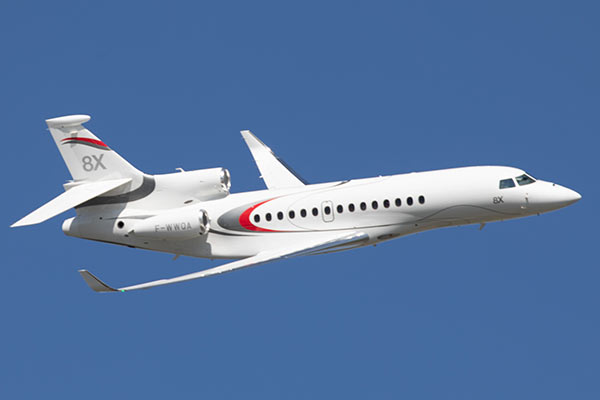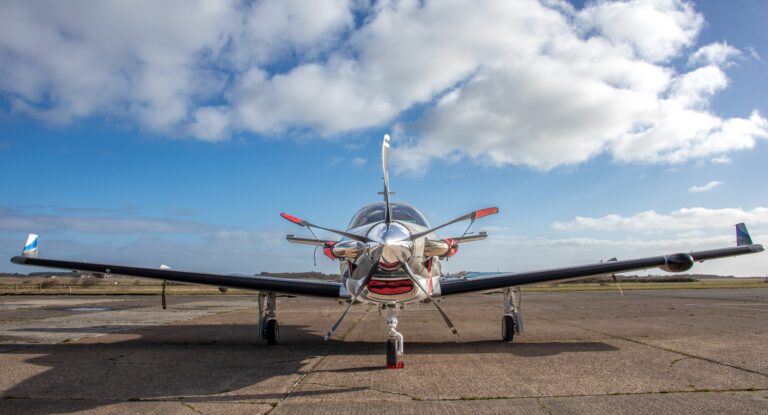How to Buy a Private Jet
Essential Guide: How to Buy a Private Jet
In a world where time is priceless and everyday travel options fall short, owning a private jet can be a game-changer. However, acquiring one is far from a stroll in the park. So, if you find yourself considering taking to the skies in a private jet of your own, you’ve come to the right place.
This article is your essential guide to buying a private jet, stripped of any fancy words or unnecessary fluff. We’ll cut straight to the chase and provide you with practical insights, tips, and advice to make your private jet purchase a well-informed and smooth voyage.
From understanding the different types of private jets available to navigating the intricacies of financing options, we’ll delve into the key aspects you need to consider. Whether you’re an experienced aviator or new to the world of private aviation, our neutral and informative tone will help you make the best decisions, enabling you to soar the skies in unparalleled comfort and convenience.
So, fasten your seat belts and prepare for an illuminating journey as we embark on the quest to discover how to buy a private jet.
Table of Contents
- Choosing the Right Private Jet for Your Needs
- Determining Your Budget and Financing Options
- Evaluating the Performance and Range of Private Jets
- Navigating the Process of Purchasing a Pre-Owned Private Jet
- Considering Maintenance, Operating Costs, and Investments
- Securing Insurance and Legal Requirements for Your Private Jet
- FAQs
- Insights and Conclusions

Choosing the Right Private Jet for Your Needs
When it comes to selecting the perfect private jet that caters to your specific requirements, there are several key factors to consider. By understanding your needs, preferences, and budget, you can narrow down the options and ensure a smooth and luxurious travel experience.
Firstly, think about the size of the private jet. Are you traveling alone or with a group? If you frequently embark on business trips solo, a light jet might be the ideal choice, offering speed and efficiency. For smaller groups or families, mid-size jets provide more space and comfort, while still offering impressive performance. If you are planning a grand getaway with a large entourage, then a heavy jet or ultra-long-range jet can offer the utmost luxury and ample seating capacity.
- Consider your journey length and destination. Will you primarily be flying short distances or embarking on transcontinental adventures? Light jets are perfect for shorter trips, enabling quick hops between cities. On the other hand, mid-size and heavy jets are more suitable for longer journeys, providing larger fuel capacity and extended range capabilities.
- Think about the amenities you desire during your flight. Are you looking for a private office space to continue working? Or perhaps you prefer a spacious cabin with luxurious seating and entertainment facilities. Some private jets even offer in-flight showers and fully equipped kitchens for added convenience.
- Don’t forget to assess the level of privacy and security you require. Depending on your needs, you can choose between private jets with separate seating areas or those equipped with advanced security features.
By carefully considering these factors, you can confidently choose the right private jet that aligns with your needs, ensuring a seamless and enjoyable travel experience.
Determining Your Budget and Financing Options
Once you’ve made the decision to move forward with your dreams, it’s crucial to assess your financial situation. Determining your budget and exploring financing options can help you take control of your project and make informed choices. Here are some practical steps to guide you through this crucial process:
1. Evaluate your current financial standing: Begin by examining your income, savings, and any existing debts or monthly expenses. This will give you a clear understanding of how much you can realistically allocate towards your project.
2. Research project costs: Dive deep into understanding the expenses associated with your endeavor. Consider all aspects, such as materials, labor, permits, and potential unexpected costs. This research will help you set a reasonable budget.
3. Define your budget: After analyzing your finances and project costs, establish a budget that aligns with your financial capabilities. Be realistic and ensure you have a contingency plan for any unforeseen circumstances.
When it comes to financing options, there are several alternatives you can explore:
1. Personal savings: Utilize your existing savings to fund your project. This can provide a sense of security and helps you avoid borrowing.
2. Loan options: Explore loans from financial institutions, focusing on ones with favorable interest rates and flexible repayment terms. Compare different loan options to choose one that suits your budget and requirements.
3. Home equity: If you own a property, you may consider using your home equity as collateral for a loan. This can provide you with a sizable amount of funding, typically with lower interest rates than personal loans.
By carefully determining your budget and thoroughly exploring financing options, you can set the foundation for successfully bringing your dreams to life. Remember, being aware of your financial limits and making informed decisions will ensure a smoother journey towards achieving your goals.
Evaluating the Performance and Range of Private Jets
Private jets are a marvel in the world of aviation, providing unparalleled speed, luxury, and convenience for the elite travel experience. When evaluating the performance and range of these high-end aircraft, several factors come into play that determine their overall capabilities.
First and foremost, the performance of a private jet is often measured in terms of its speed and altitude capabilities. Private jets are designed to fly at incredible speeds, allowing them to cover vast distances in a fraction of the time compared to commercial airplanes. The ability to cruise at high altitudes is also crucial, as it allows these jets to avoid busy air traffic and inclement weather, ensuring a smoother and more efficient journey for passengers.
Another crucial aspect to consider when evaluating private jets is their range or how far they can fly without refilling the fuel tanks. This range is determined by various factors such as fuel efficiency, engine power, and aircraft weight. A longer range enables travelers to reach remote destinations and non-stop flights, saving precious time and offering maximum convenience. Combining a high range with efficient fuel consumption ensures that private jets can cover extensive distances without compromising on performance or requiring frequent refueling stops.
In conclusion, the evaluation of private jets’ performance and range encompasses crucial aspects such as speed, altitude capabilities, and fuel efficiency. These factors collectively contribute to the luxurious and seamless travel experience private jets offer. Whether you need to travel swiftly or aim for destinations off the beaten path, private jets are designed to excel in both performance and range, providing the epitome of opulence in air travel.
Navigating the Process of Purchasing a Pre-Owned Private Jet
Financing is another crucial aspect to consider. Determine your budget and explore financing options if needed. Ensure you understand the financial obligations, including insurance, taxes, and ongoing maintenance costs. Once you’ve found the perfect private jet, navigate negotiation strategically. Conduct market research to familiarize yourself with the current pricing trends. Create a detailed offer based on your findings and engage in sensible negotiations with the seller.
Considering Maintenance, Operating Costs, and Investments
Maintenance, operating costs, and investments are three crucial factors that should never be overlooked when making any decision. Ensuring proper maintenance not only enhances the longevity of your assets but also prevents unexpected breakdowns. It is imperative to regularly service your equipment, conduct routine inspections, and address any issues promptly to avoid more significant repairs in the future. By allocating resources for consistent maintenance, you can significantly reduce the overall costs in the long run, increasing efficiency and reliability.
Operating costs play a vital role in determining the sustainability of your venture. To minimize these expenses, it is essential to identify areas where improvements can be made. Implementing energy-saving measures, such as installing energy-efficient equipment and optimizing resource usage, can greatly reduce utility bills. Another effective strategy is to streamline operations, eliminating any unnecessary waste or redundancies. By conducting regular cost analysis and keeping track of expenses, you can identify opportunities for further optimization and cost reduction, ultimately enhancing your bottom line.
Investments in your business can be a game-changer, enabling growth and profitability. By strategically allocating funds to areas with high potential for return, you can expect long-term benefits. It is vital to conduct thorough research and analysis before investing in any new project or expanding your operations. Utilize market research to identify trends and understand your target audience better. Additionally, consider investing in employee training and development, as a well-trained workforce can significantly boost productivity and ensure higher customer satisfaction. Smart investments can lead to greater success and pave the way for future growth and expansion.
Securing Insurance and Legal Requirements for Your Private Jet
Securing insurance and meeting legal requirements for your private jet is of utmost importance to ensure a safe and smooth journey. Below, we have outlined the key steps you need to take in order to protect yourself and comply with regulations:
1. Research insurance options: Begin by researching reputable insurance companies that specialize in aviation coverage. Look for policies that offer comprehensive protection for your private jet, including liability coverage, aircraft damage, passenger injury, and more. Compare quotes and consider consulting an aviation insurance broker to find the best coverage for your needs.
2. Review required documents: Familiarize yourself with the legal documents necessary to operate a private jet. This typically includes obtaining an Air Operator Certificate (AOC) or Air Carrier Operating Certificate (ACOC) from the relevant aviation authority. Additionally, you may need to apply for a Certificate of Insurance, which provides proof of coverage to the authorities and is often required for hangar rentals or landing permits.
3. Verify compliance with regulations: Ensure that your private jet meets all regulatory requirements set forth by aviation authorities. This may include maintenance and inspection standards, registration requirements, and adherence to noise and emissions limitations. Consult with an aviation attorney or representative to confirm that your private jet complies with all relevant laws and regulations in your operating region.
4. Maintain proper documentation: Keep all insurance and legal paperwork relating to your private jet in a safe and easily accessible location. This includes your insurance policy, binder, and any certificates or permits obtained. Regularly review and update these documents to ensure they remain valid and reflect any changes to your private jet ownership or usage.
By carefully navigating the insurance and legal landscape of private jet ownership, you can enjoy peace of mind knowing that you have taken the necessary steps to protect your investment and comply with applicable laws. Remember, it is always prudent to consult with professionals who specialize in aviation insurance and law to address any specific concerns or questions you may have.
FAQs
FAQs – How to Buy a Private Jet
1. Can anyone buy a private jet?
Yes, anyone can buy a private jet as long as they can afford the cost.
2. How much does a private jet typically cost?
The price range for private jets can vary greatly from a few million dollars to over $100 million, depending on the model, age, and various specifications.
3. Can I finance the purchase of a private jet?
Yes, there are financing options available for buying a private jet. However, the terms and conditions will depend on your creditworthiness and the lending institution’s policies.
4. What additional costs should I consider besides the purchase price?
Besides the purchase price, you should factor in operational costs such as fuel, maintenance, crew salaries, hangar space, insurance, and potential upgrades or modifications to the aircraft.
5. Do I need a pilot’s license to own a private jet?
No, you do not need a pilot’s license to own a private jet. However, if you plan to fly it yourself, you will need to obtain the appropriate pilot certification and complete the necessary training.
6. How do I find private jets for sale?
There are various options to find private jets for sale: consult aircraft brokers, browse reputable online listings, attend aviation trade shows, or check with manufacturers or dealers directly.
7. What should I consider when selecting a private jet model?
Consider factors such as the jet’s range, seating capacity, cabin size, operating costs, maintenance requirements, and the manufacturer’s reputation for reliability and customer support.
8. Should I buy a new or used private jet?
The decision to buy a new or used private jet depends on your budget and desired specifications. Used jets are generally more affordable, but may have higher maintenance costs, while new jets offer the latest technology but come at a premium price.
9. How do I ensure the aircraft’s condition before buying?
Before purchasing a used private jet, it’s crucial to have a comprehensive pre-purchase inspection conducted by certified aviation technicians to evaluate the aircraft’s condition thoroughly.
10. Are there any tax considerations when buying a private jet?
Yes, taxation on private jets can vary depending on the jurisdiction. It’s advisable to consult with a tax professional to understand the implications and benefits in your specific situation.
Remember, buying a private jet is a significant investment, and conducting thorough research, consulting experts, and carefully planning your purchase are essential steps to ensure a successful and satisfactory experience.
The Way Forward
In conclusion, buying a private jet may seem like a dream reserved for the super-rich, but with the right knowledge and preparation, it can be a feasible goal. Remember to assess your needs, set a budget, explore the market thoroughly, and consult with industry professionals. By following these steps, you can navigate the complex world of private jet ownership and make an informed decision that meets your requirements. So, go ahead, spread your wings, and soar through the skies in your very own private jet. Happy travels!







